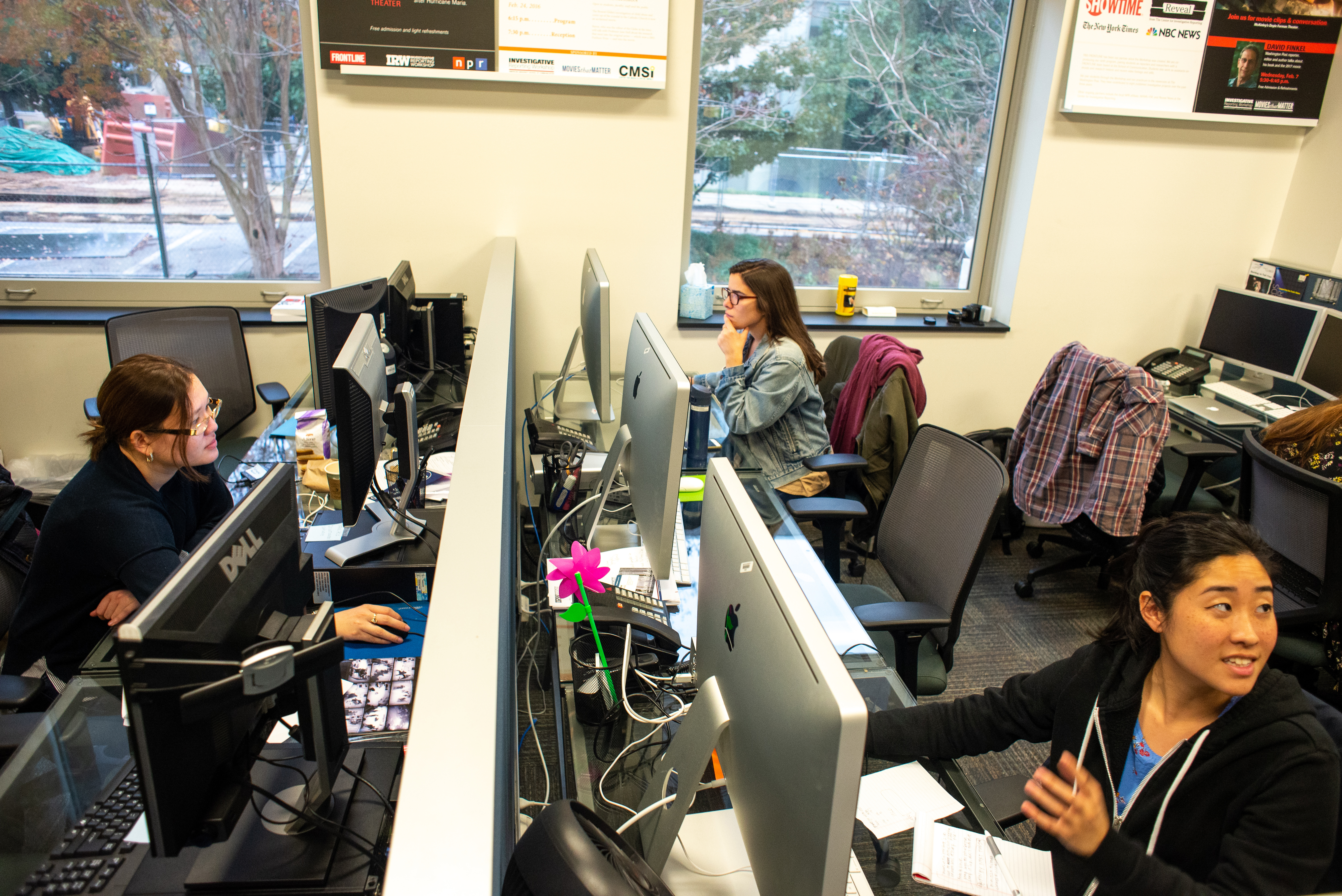Categories
BlogA student recently told me how much she learned by watching and listening to a reporter she was working with over several months. She said the reporter was patient and understanding during interviews. The reporter’s manner was a revelation, the student said, because these were characteristics others had warned her were not assets in journalism.
This nugget suggests that learning happens all the time, often in ways that are invisible to the mentor. We pair students with professionals at IRW and with the PBS FRONTLINE team based here at American University, and with reporters at The Washington Post and other legacy partners. The mentoring is often formal, of course, and may include further development or use of a skill, such as data entry and analysis. Mentoring may be formal but conversational, such as when an editor sits down and goes through the draft of a story line by line. But it also sometimes happens when someone takes the time to point the student in the right direction, perhaps after she submits a research memo and discusses the best way to focus a story.

IRW Senior Editor John Sullivan, who is also a reporter at the Post, assigned two grad students this fall to work with reporter Kimbriell Kelly on a project related to unsolved murders.
Shelby Hanssen and Elizabeth Weber
contributed to “A Home Surrounded by Homicides,” published Nov. 16, which focused on Cynthia Glover, 56, who lives outside of New Orleans and has lost three children and a grandchild in separate incidents related to gun violence.
Hanssen and Weber transcribed hours of audio interviews, which turned out to be a learning experience as well.
“I thought it was really great to hear her interviewing style,” Weber said of Kelly. “She was very comfortable with silence and with letting her (Glover) fill that space by telling her story.”
She also said Kelly was patient but persistent as she worked to get more details, not “afraid to push or ask more questions.”
Several other students are working on long-term projects with Sullivan or with others on the investigative team at the Post; their stories are slated to run later this year. And some have peeled off to focus on a particular interest or specialty area.

Cindy Choi came to graduate school after three years as a video editor and producer at the South Florida Sun-Sentinel. She also previously earned a certificate in meteorology and climatology. That background has landed her with the Capital Weather Gang at The Washington Post, where she is producing weather explainers, such as a recent one on El Nino.
Marisa Iati, who worked at The Star-Ledger and NJ.com in New Jersey before coming to graduate school, has a particular interest in religion. She focuses on that work at the Post, helping to report stories on sexual abuse and American bishops’ differences with the Vatican.
Choi and Iati joined Sommer Brugal and Orion Donovan-Smith, all interns at the Investigative Reporting Workshop, to talk to voters at the polls on election day in early November, contributing to the Post’s coverage throughout the day and the final wrap-up.
Our multifaceted interns showcase their versatility each semester by live-tweeting, taking photos and video and helping to market IRW-sponsored events, such as a recent Mind2Mind conference — co-hosted with Reveal from The Center for Investigative Reporting and focusing on how academics, researchers and journalists can work together — and another one about political journalism, co-sponsored by POLITICO and the Maynard Institute.
We also usually have graduate students from other universities; since early June, Dariya Tsyrenzhapova has been with us on a Dow Jones Fellowship. She recently completed her master’s degree at the University of Missouri and has continued to contribute to the Columbia Missourian.

Her most recent article took weeks of peeling back the layers on a story about Missouri’s new sex offender registration law, which ended the state’s 24-year legacy of a one-size-fits-all approach to keeping all registrants on the list for life regardless of the severity of their crimes.
She dug deep into the story behind the new law, championed by Rep. Kurt Bahr (R-St. Charles). She wrote about Bahr’s personal interest in the law’s passage — his half-brother is a registered sex offender. Bahr would not admit that, refusing to name the constituent who inspired his legislation. But with a tip from the victim, and Tsyrenzhapova’s thorough public-records reporting, she uncovered the direct relationship.
That victim, who was just 15 when she was being secretly recorded, was willing to be named, and she became a powerful voice for the story.
Tsyrenzhapova’s story took time. She was patient. She didn’t expect the victim to talk to her right away or to be willing to go on the record; that took more than one conversation. She didn’t know whether the story would work out. But she discovered, as many journalists do, that she could wait until one of the key interviewees was ready to talk, and only then could she write the story.





